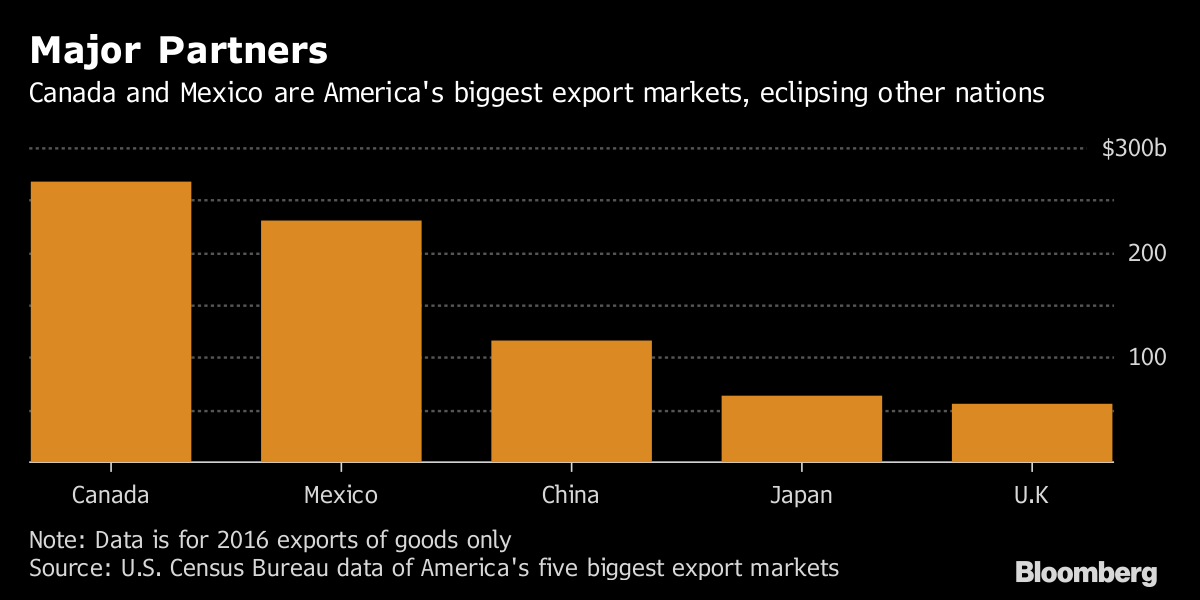Markets shuddered on signs the U.S. may be preparing to withdraw from Nafta. But even if President Donald Trump serves notice of a pullout, the trade deal could survive.
Under the accord, the U.S., Canada or Mexico can withdraw after giving six-months’ notice. Scant progress has been made on the thorniest issues ahead of the sixth round this month in Montreal, fueling speculation Trump will follow through on his threat to walk away.
Investors are looking to any clues. Canada’s dollar and Mexico’s peso dropped and Mexican stocks retreated following reports on Wednesday that Canada sees an increasing chance the U.S. will exit Nafta. The White House later said its policy hasn’t changed.
What would happen next has become a topic of debate among trade lawyers in Washington. Here are three possible scenarios, each with its own implications for markets and the North American economy:
Zombie Deal

Just because the president issues a withdrawal notice doesn’t mean the U.S. will formally pull out after six months. Since announcing the U.S. will leave the Paris climate-change agreement, for example, the U.S. has sent signals that it may stay in the accord under certain conditions.
There’s also speculation Congress could prevent the White House from dismantling Nafta. Under the Constitution, Congress has the power to “regulate commerce with foreign nations.” Pro-Nafta groups could challenge Trump’s decision in court, arguing he doesn’t have the authority to withdraw.
Republican lawmakers who support Nafta could also team up with trade-supportive Democrats to block the repeal of the law that formally implements the trade pact. The key issue will be whether the U.S. raises tariffs on Mexican and Canadian goods, many of which cross the border duty-free under Nafta. The president has broad authority over tariffs, but some experts believe Congress could throw up roadblocks.
In other words, Nafta could stagger on well after Trump signals a pullout. Goldman Sachs places higher odds on a withdrawal notice than it does on the U.S. actually raising tariffs.








